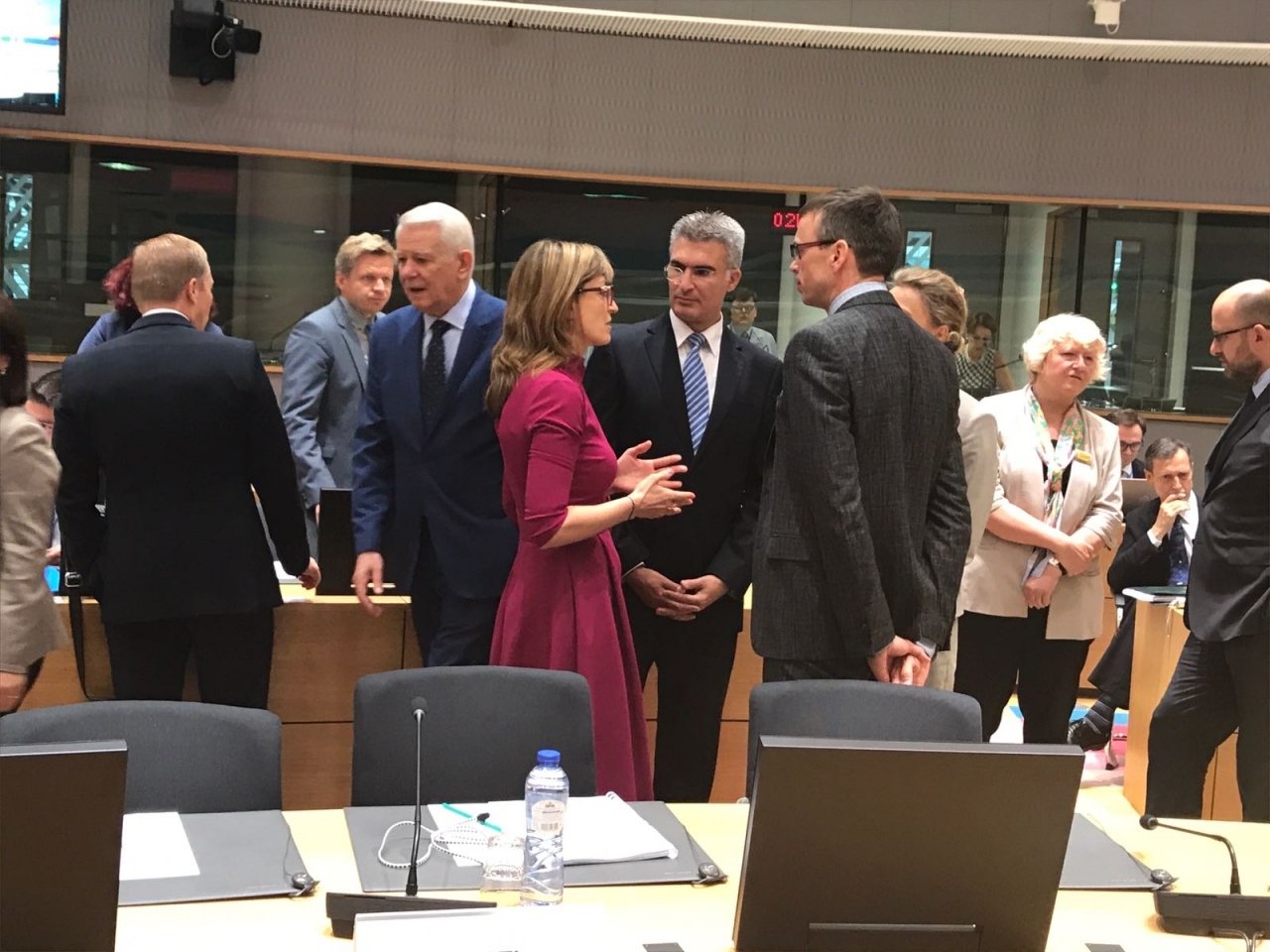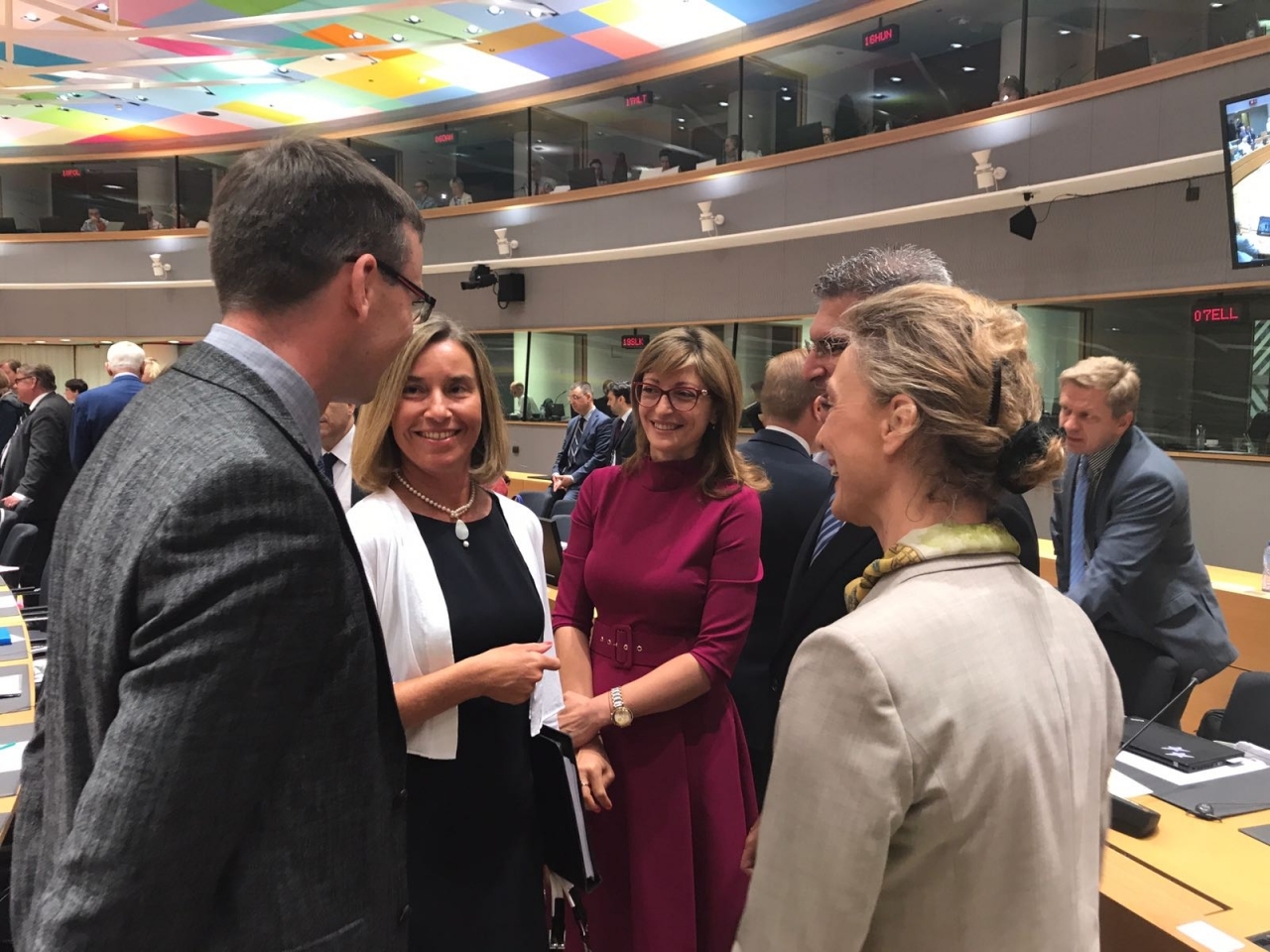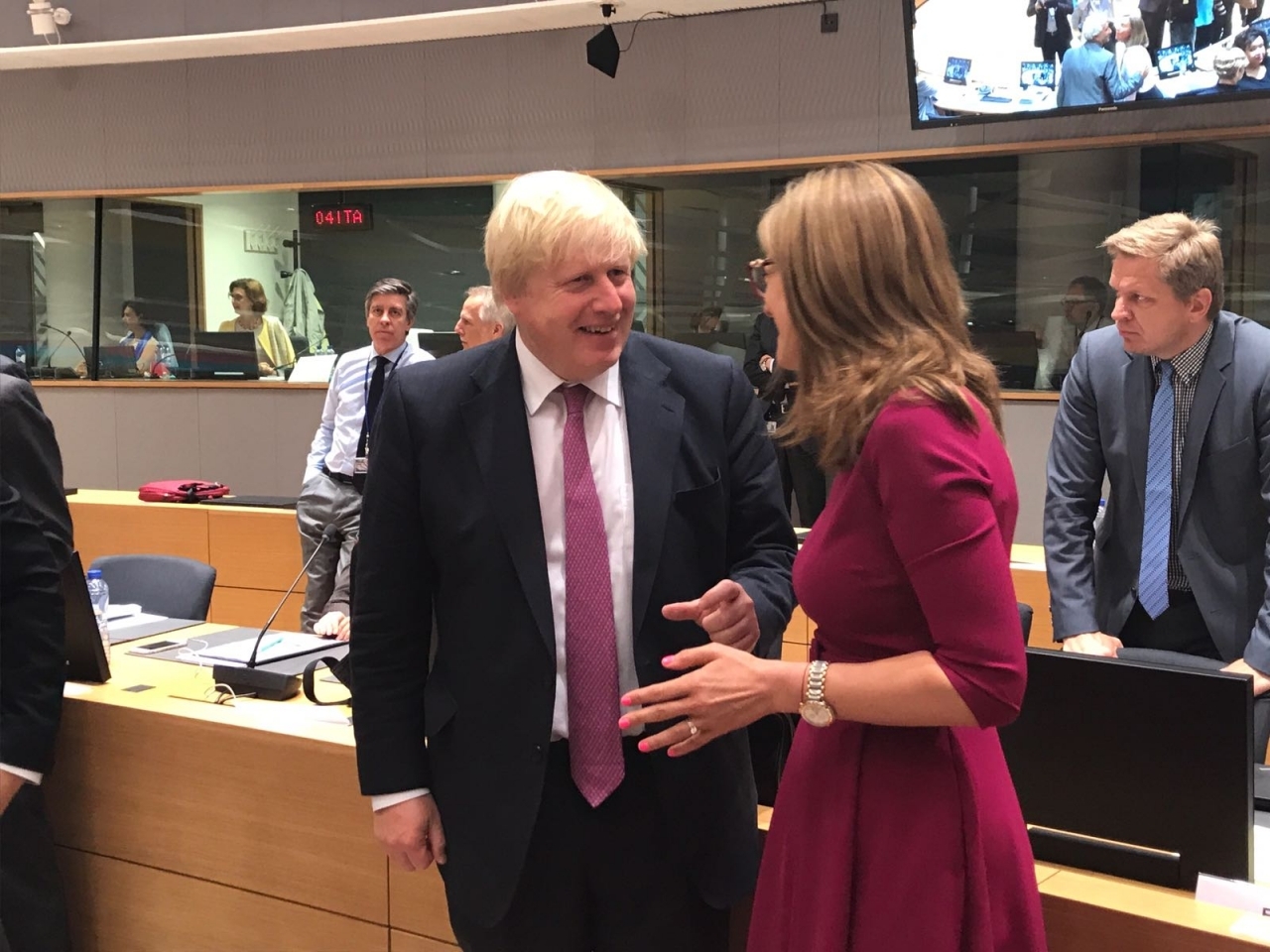Deputy Prrime Minister Zaharieva supports EU commitment towards Western Balkans and Eastern Partnership countries
17 July 2017 News
The Deputy Prime Minister and Minister of Foreign Affairs Ekaterina Zaharieva took part in the EU Foreign Affairs Council meeting in Brussels. The priorities for the implementation of the EU Global Strategy for 2018, the situation in Libya, the migration crisis in the Central Mediterranean and the last developments in the People’s Democratic Republic of Korea were in the focus of the attention of the EU chief diplomats.
The ministers assessed positively the progress of the implementation of the EU Global Strategy and emphasized the need for continued deepening of cooperation in the area of security and defense. The commonly shared view was that next year’s priorities will include supporting global governance based on international law, enhanced cooperation with UN and NATO, and with regional organizations such as OSCE, the African Union, etc., in search of common solutions to security challenges.
It is important not to lose the inertia accumulated in the security and defense area in order to attain sustainable results. Successful conflict and crisis resolution is achievable only if we apply a complex approach, combining different policy actions – development policy actions, humanitarian actions and peace promoting actions, stated the Deputy Prime Minister Zaharieva. Bulgaria supports the focus placed on firmer further political commitment of the EU towards the countries of the Western Balkans and the Eastern Partnership, she emphasized.
The ministers discussed the political situation in Libya and welcomed the appointment of Ghassan Salamé as new Special Representative of the UN Secretary General for Libya. The Council also agreed to extend the CSDP mission EUBAM Libya until 31 December 2018. They also underlined the importance of EU's naval operation Sophia in the Mediterranean.
The ministers discussed the migration challenges together with the United Nations High Commissioner for Refugees, Filippo Grandi, and the Director-General of the International Organisation for Migration William Lacy Swing.
The deputy Prime Minister Zaharieva noted that the situation in Italy in the last weeks is alarming and Bulgaria as an external EU border state understands too well the importance of solidarity. Effective policies for return and readmission are of key importance. The EU should continue to work on the conclusion of the respective agreements, not only with African states, but with other countries of origin and transit in the Middle East and Asia, she added.
The foreign ministers strongly condemned the continuing ballistic missile tests and the nuclear program of the DPRK, which lead to escalation of the tension and seriously undermine regional and global security. North Korea was urged to comply without delay, fully and unconditionally, with its obligations under all relevant UN Security Council resolutions and to refrain from any further provocative actions. The EU continues its policy of Critical Engagement, while keeping communication, and dialogue channels with DPRK open, but is also ready to consider additional autonomous sanctions if Pyongyang continues with the provocations. It was emphasized that DPRK should undertake concrete action to fulfill its commitments for full and irreversible cessation of its programs for development of nuclear weapons and ballistic missiles.


